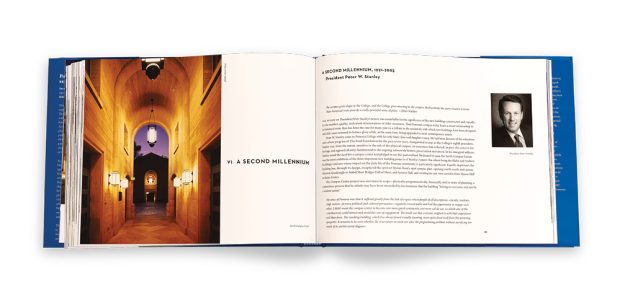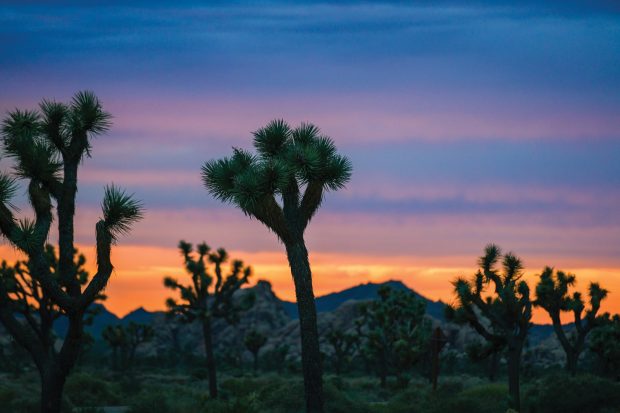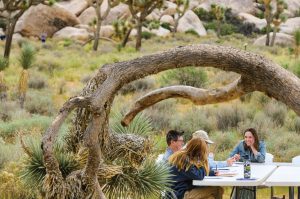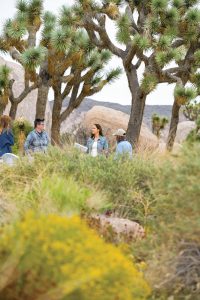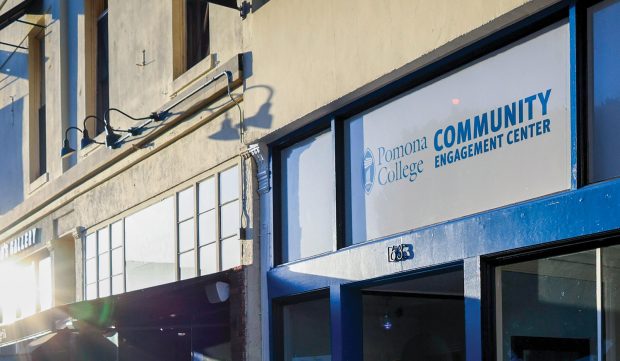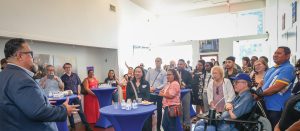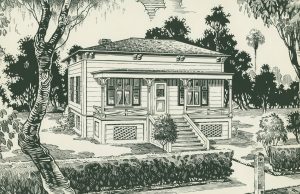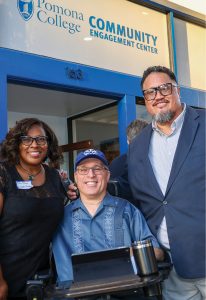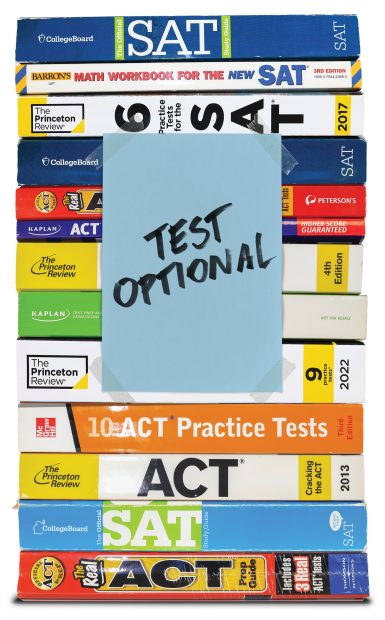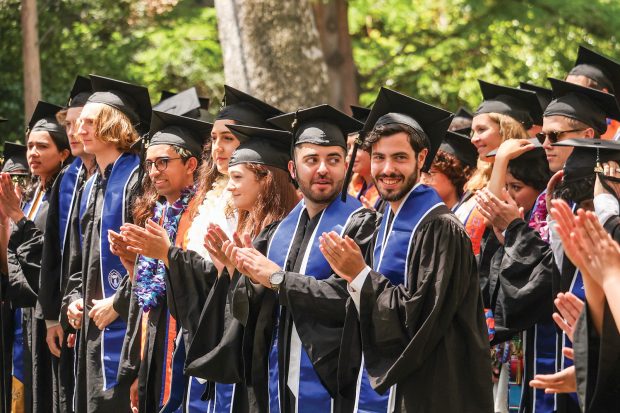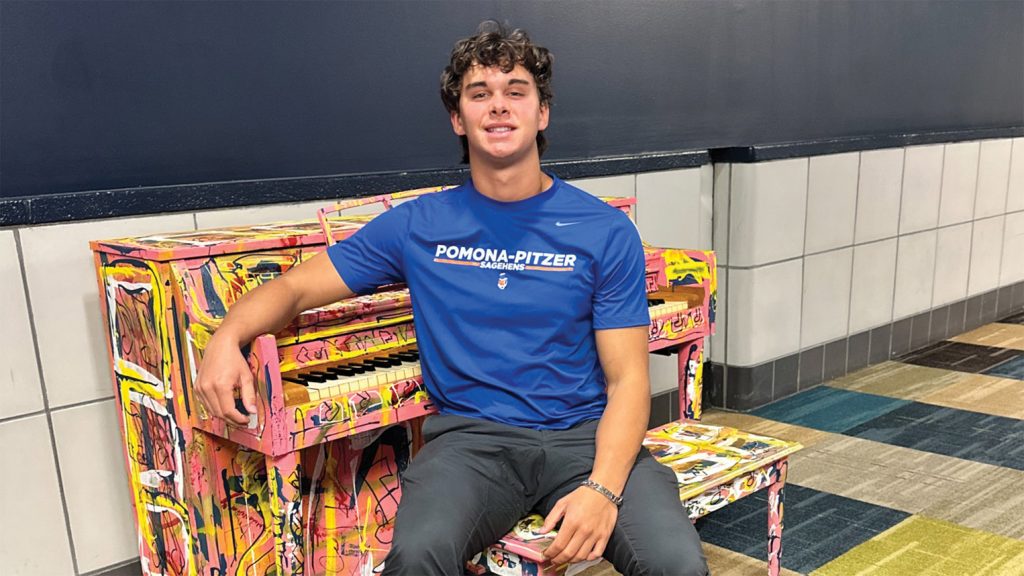
While visiting Canada the summer before his first year of high school, Hudson Colletti ’27 sat down at a piano one day and began tickling the ivories.
In town with family for the Montreal International Jazz Festival, the Pennsylvania teen wasn’t on stage playing for a capacity crowd inside a palatial concert hall or cozy auditorium.
He was on a street corner.
Within minutes, the sounds echoing through the neighborhood drew passersby, many quick to record the young pianist’s impromptu performance.
“I loved that,” Colletti says. “I thought [playing in public] was a really cool way for me to share something I love. I thought, ‘Why not bring that opportunity back home?’”
Colletti—a first-year student who plans to study economics and computer science, founded Free the Music at 14, not long after returning from Canada. In the years since, he has collected unwanted pianos and provided them to local visual artists as canvases. These customized pianos have found second homes in restaurants and apartment buildings, as well as on various street corners, around Colletti’s hometown of Sewickley, Pennsylvania—population 3,900.
“A lot of people want to learn how to play piano,” he says, “or know how to play but don’t have access to a piano because of how much space they take up or how hard they are to move into a house.”
By placing pianos in public, Free the Music is giving others a chance to fall in love too.
“One of the pianos we placed in town,” he says, “was originally given with nothing inside of the bench, and after four or five months over summer, the bench was filled with books and sheet music from people learning how to play and having lessons there.”
As successful as Free the Music’s initiative has been in his home state, Colletti sees no reason he can’t continue his work elsewhere.
“Music brings people together and brightens our mood,” he says. “It’s a great reminder after finishing a song when people gather around because they have a love of music.”
To see—and hear—Colletti playing one of the painted pianos, check out the video at pomona.edu/hudson-colletti-piano.

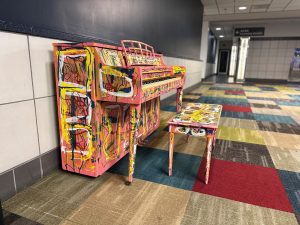
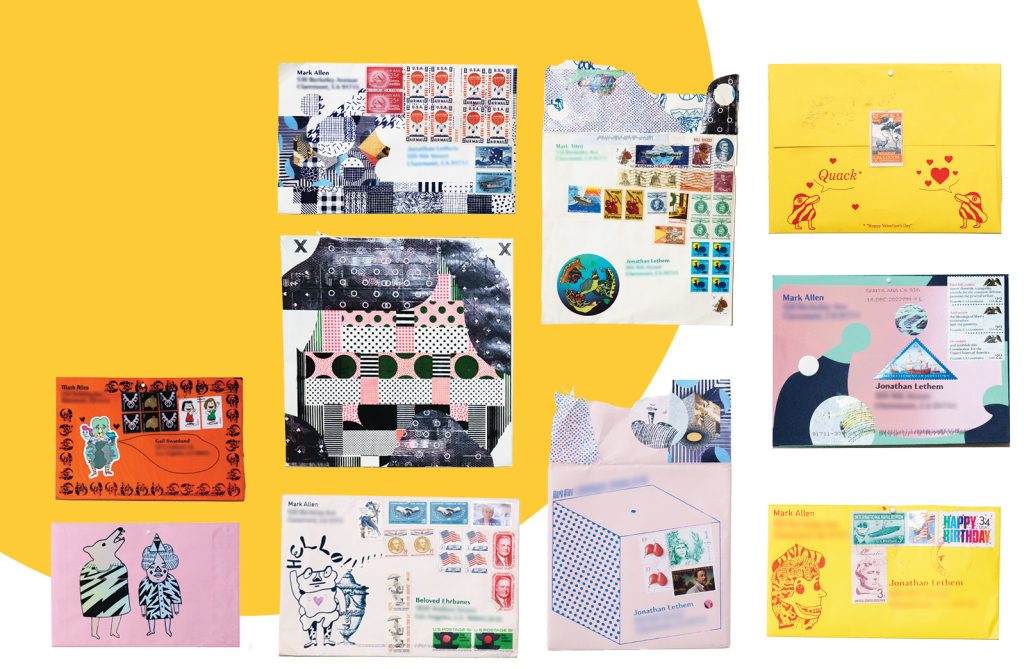
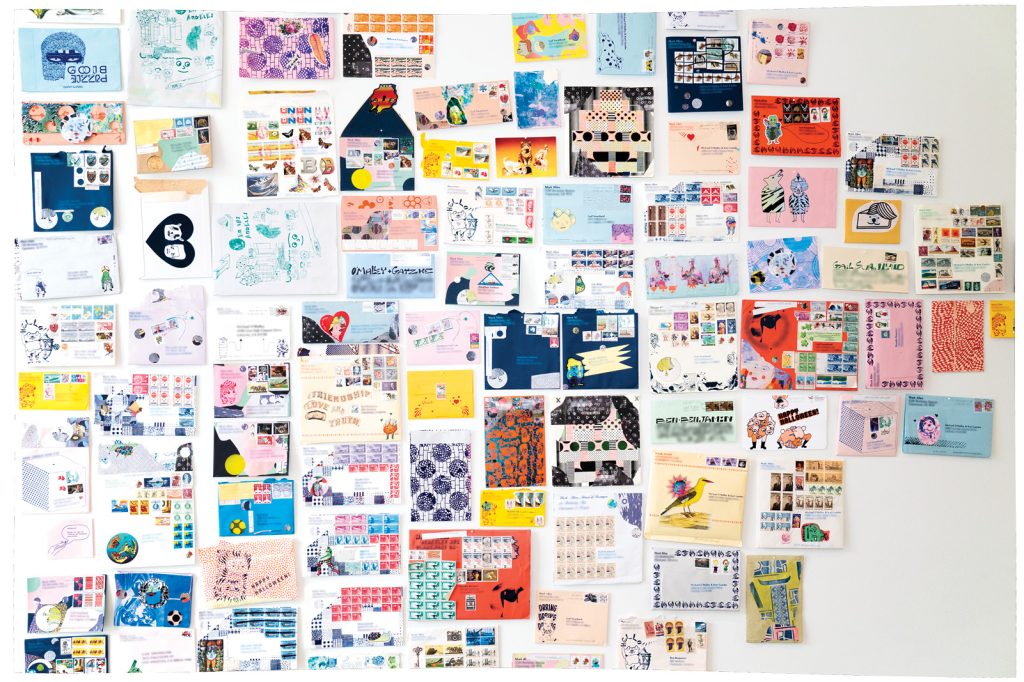
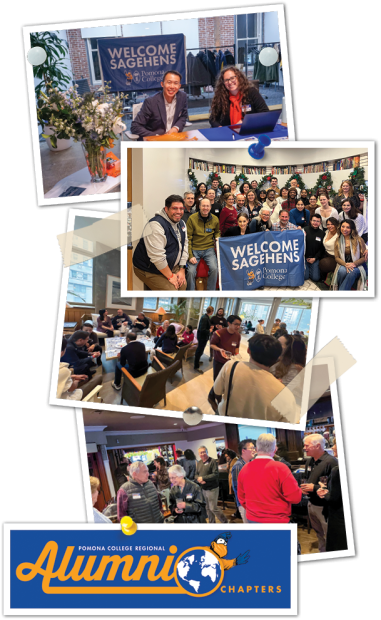 With just a handful of months left in my term as Alumni Association Board president, I’ve been reflecting on my time as a board member these past several years. One of the best things about my involvement has been the opportunity to connect with so many of you. I continue to be awestruck that Pomona grads really do blanket our globe. And whether it’s been chatting with alumni at College events, catching up with classmates at informal gatherings, or a random meeting with a fellow Sagehen after spotting a Pomona T-shirt, it reminds me every time of the broad and unique community we have. We often talk about the Pomona experience referring to our time as students, but it only begins there. Meeting up with each other through events, work or chance encounters reminds us that the Pomona experience extends beyond the Gates and throughout our lives.
With just a handful of months left in my term as Alumni Association Board president, I’ve been reflecting on my time as a board member these past several years. One of the best things about my involvement has been the opportunity to connect with so many of you. I continue to be awestruck that Pomona grads really do blanket our globe. And whether it’s been chatting with alumni at College events, catching up with classmates at informal gatherings, or a random meeting with a fellow Sagehen after spotting a Pomona T-shirt, it reminds me every time of the broad and unique community we have. We often talk about the Pomona experience referring to our time as students, but it only begins there. Meeting up with each other through events, work or chance encounters reminds us that the Pomona experience extends beyond the Gates and throughout our lives.
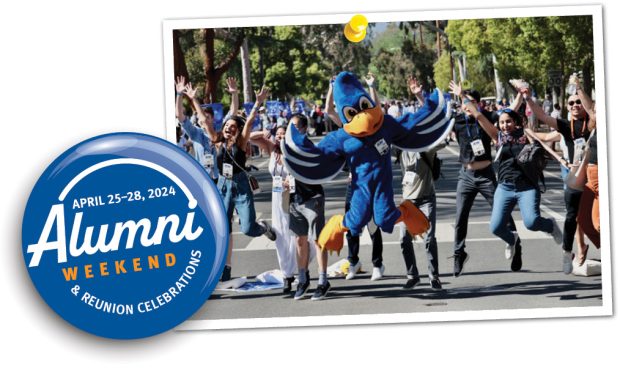
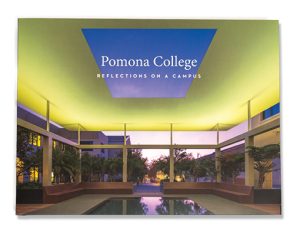 Written predominantly during the pandemic, this second edition of Reflections by Marjorie Harth, emerita professor and director of the former Pomona College Museum of Art, updates and expands the scope of the first, published in 2007. Like the first edition, this 292-page book documents and reflects upon the campus of Pomona College as an architectural entity and visual expression of the history and identity of a great academic institution. Many of the original entries and essays have been edited and updated, as have the photographs. Among new entries is Scott Smith’s essay on landscape architect Ralph Cornell.
Written predominantly during the pandemic, this second edition of Reflections by Marjorie Harth, emerita professor and director of the former Pomona College Museum of Art, updates and expands the scope of the first, published in 2007. Like the first edition, this 292-page book documents and reflects upon the campus of Pomona College as an architectural entity and visual expression of the history and identity of a great academic institution. Many of the original entries and essays have been edited and updated, as have the photographs. Among new entries is Scott Smith’s essay on landscape architect Ralph Cornell.